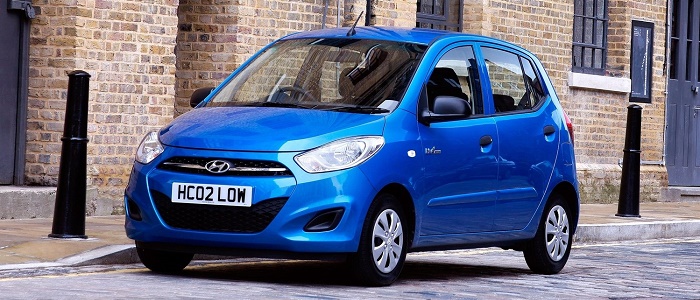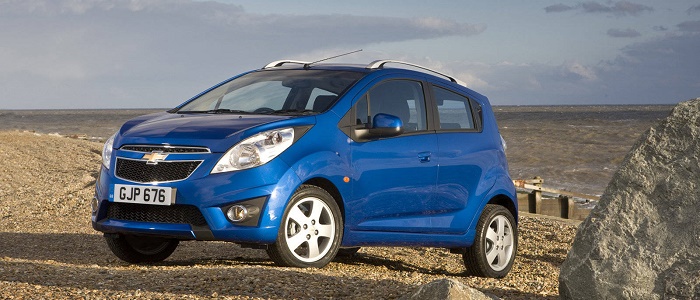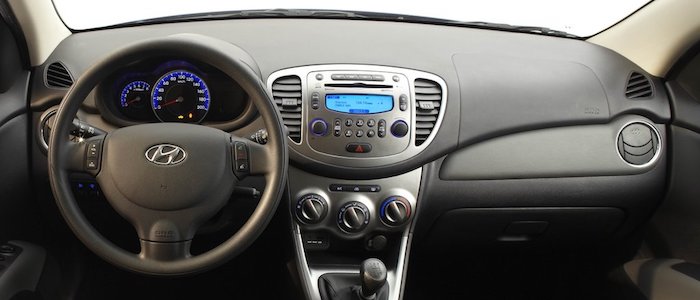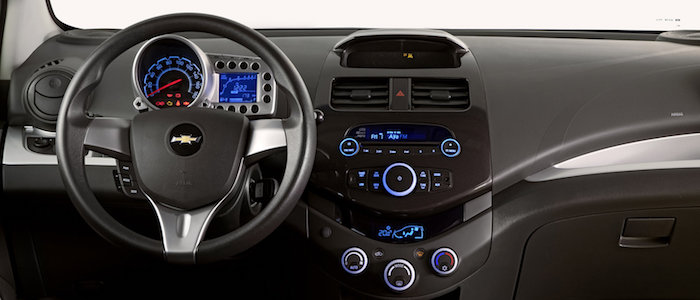Compare two cars
Compare any two cars and get our Virtual Adviser™ opinion
Marketing
Dimensons & Outlines
Engine
Performance (manual gearbox)
Performance (automatic gearbox)
Expenses
Virtual Adviser's™ opinion
Well, these are two pretty similar cars we have here! It's only details that could potentially make the difference. Considering they both belong to the micro car segment and utilize the same 5-door hatchback body style and the front wheel drive system, it all comes up to the specific petrol engine choice they offer. The first one has a Hyundai-engineered powertrain under the hood, a 4-cylinder, 12-valves 65hp unit, while the other one gets its power and torque from a 4-cylinder, 16-valves 68hp engine designed by Chevrolet.
SafetyBoth vehicles got tested by European New Car Assessment Programme (Euro NCAP), with the same number of safety stars gained in the process. Still, apart from the official crash test results there are other things we need to be aware of. Both vehicles belong to the micro car segment, which is generally a misfortune safety-wise, but that fact doesn't break the tie between the two cars. Furthermore, taking kerb weight as an important factor into account, the Korean car offers a marginal difference of 6% more metal.
ReliabilityI don't like generalizing things when it comes to reliability, although it does seem that both brands display similar results in faults and breakdowns, at least on all of the models level. These are the results of an independent reasearch, while our visitors describe reliability of Hyundai with an average rating of 4.5, and models under the Chevrolet badge with 4.2 out of 5. Unfortunatelly, I don't have enough insight that would allow me to comment in more details on the specific models level. That apart, owners of different cars powered by the same engine as the Korean car rank it on average as 4.3, while the one under the competitor's bonnet gets 5.0 out of 5.
Performance & Fuel economyHyundai is a bit more agile, reaching 100km/h in 0.7 seconds less than its competitor. Still, it lacks the power to win the top speed competition, topping at 149 kilometers per hour, 5km/h less than the other car. When it comes to fuel economy the winner has to be the Korean car, averaging around 4.2 liters of fuel per 100 kilometers (67 mpg), in combined cycle. We can't ignore that 21% difference compared to the American car.
Verdict
Chevrolet appears just a bit more reliable, although the difference is truly marginal. The most important thing when deciding between any two vehicles should always be safety, both passive and active. In my opinion, everything taken into account, the Korean car offers slightly better overall protection and takes the lead. It all continues in the same direction, with Hyundai offering somewhat better performance, just enough to call it quicker. To make things even better, it consumps less fuel! All together, there's not much more to say, in this case I wouldn't even consider anything but Hyundai. Anyway, that's the most objective conclusion I could've came up with and it's based solely on the information found on this website. Aspects such as design, practicality, brand value and driving experience are there for you to measure them out. In case you have two minutes to spare I invite you to define your needs, desires and budget and see which car would be chosen by the virtual adviser™, out of 12.000+ vehicles we currently have in our database.































